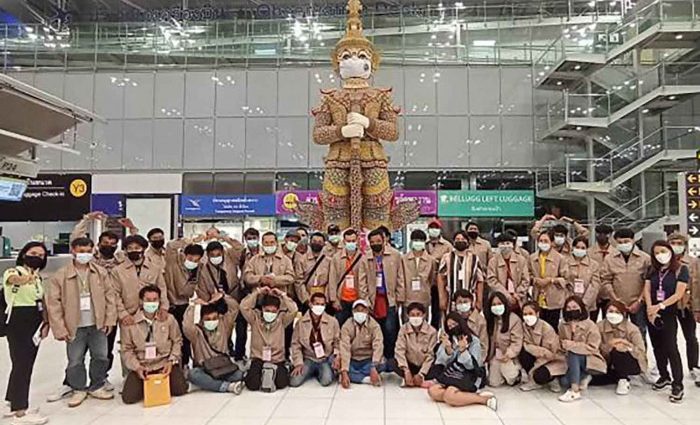
Thailand sent more than 21,000 workers abroad in the first quarter of the 2024 fiscal year, bringing in almost 60 billion baht in income, according to a top labour official.
A total of 21,281 Thai workers left to work abroad during October-December last year, with almost half of them, 10,024, being sent by the private sector, said permanent secretary for labour Pairoj Chotikasathien.
A group of 7,709 workers returned to work as part of the re-entry programme. A group of 2,015 workers were sent by the government, and the remaining 1,533 went on their own, according to Mr Pairoj.
Collectively, these workers sent back 58,627 billion baht in income, he said.
He said the ministry aims to send about 100,000 Thai workers abroad during this fiscal year under a plan drawn up by the Department of Employment, adding all Thai workers overseas can contact 12 Thai labour offices worldwide when they need help.
Currently, a total of 118,080 Thais are employed overseas, and most of them are hired in the agricultural, manufacturing, and construction sectors, according to Mr Pairoj.
The top ten destinations are Taiwan, South Korea, Israel, Japan, Malaysia, Singapore, Hong Kong, Hungary, the US and the UAE.
On Monday, Labour Minister Phiphat Ratchakitprakarn reiterated a policy to upgrade labour skills to meet market demand as part of the ministry’s efforts to elevate workers’ incomes.
He said the ministry has implemented “Wage Rates for Skilled Workers” covering 275 fields, many of which will accommodate foreign investments in the industrial sector, including the manufacturing of electric vehicles.
He noted that “skilled workers” are entitled to higher minimum wages, and those who meet required “standards” in 53 fields are paid a daily minimum wage of 600 baht.
Effective Jan 1 this year, the daily minimum wage for unskilled workers nationwide rose by 2 and 16 baht to range between 330 and 370 baht.
To support the government’s policy on tourism, a 3.5-trillion-baht tourism revenue target has been set for 2025, and the ministry plans to upgrade the skills of 400,000 workers in the sector, he said.
According to Mr Phiphat, the ministry is also working closely with the Interior Ministry, the Education Ministry, and the Ministry of Higher Education, Science, Research, and Innovation to support those who want to reskill and upskill.

